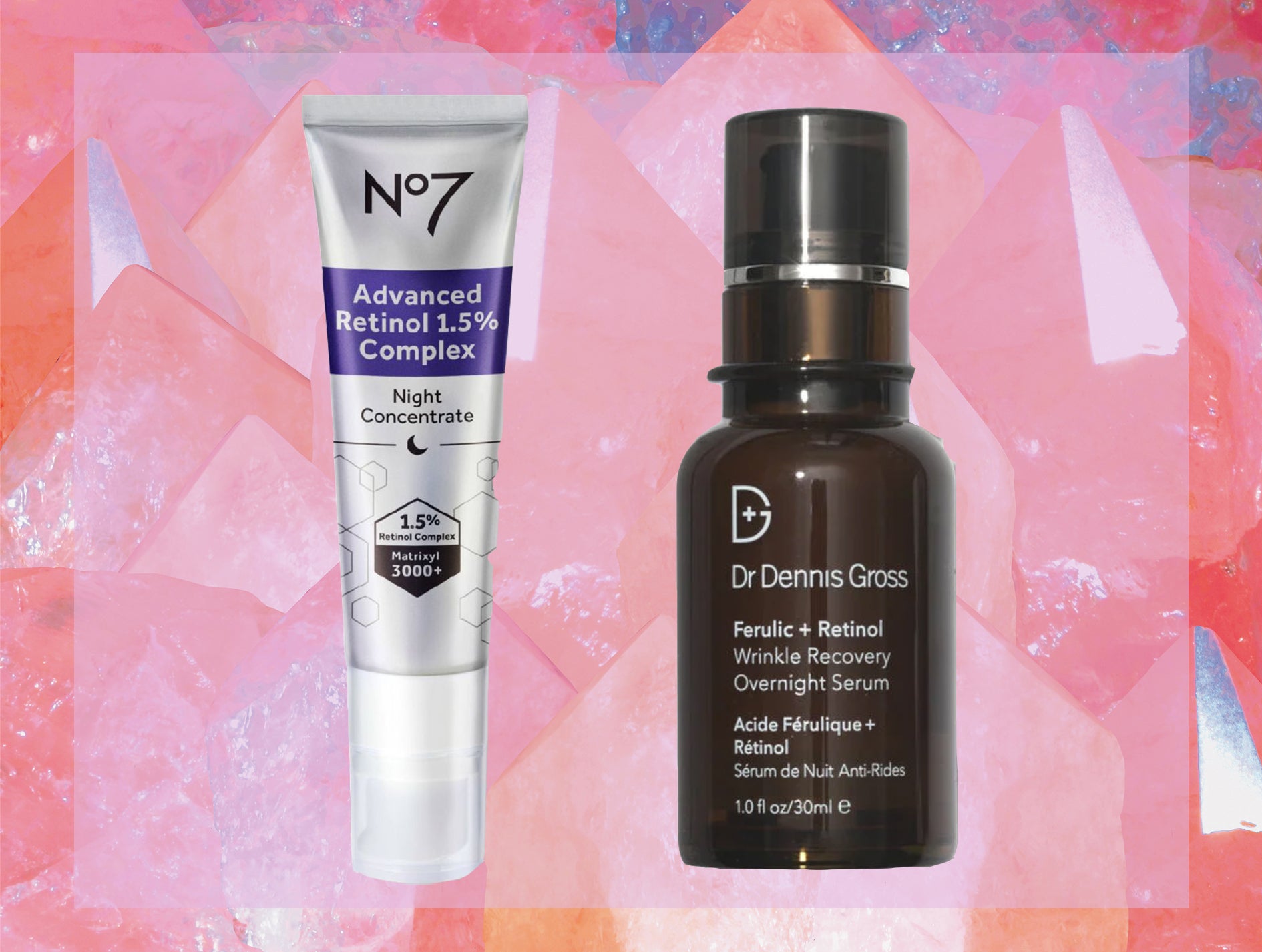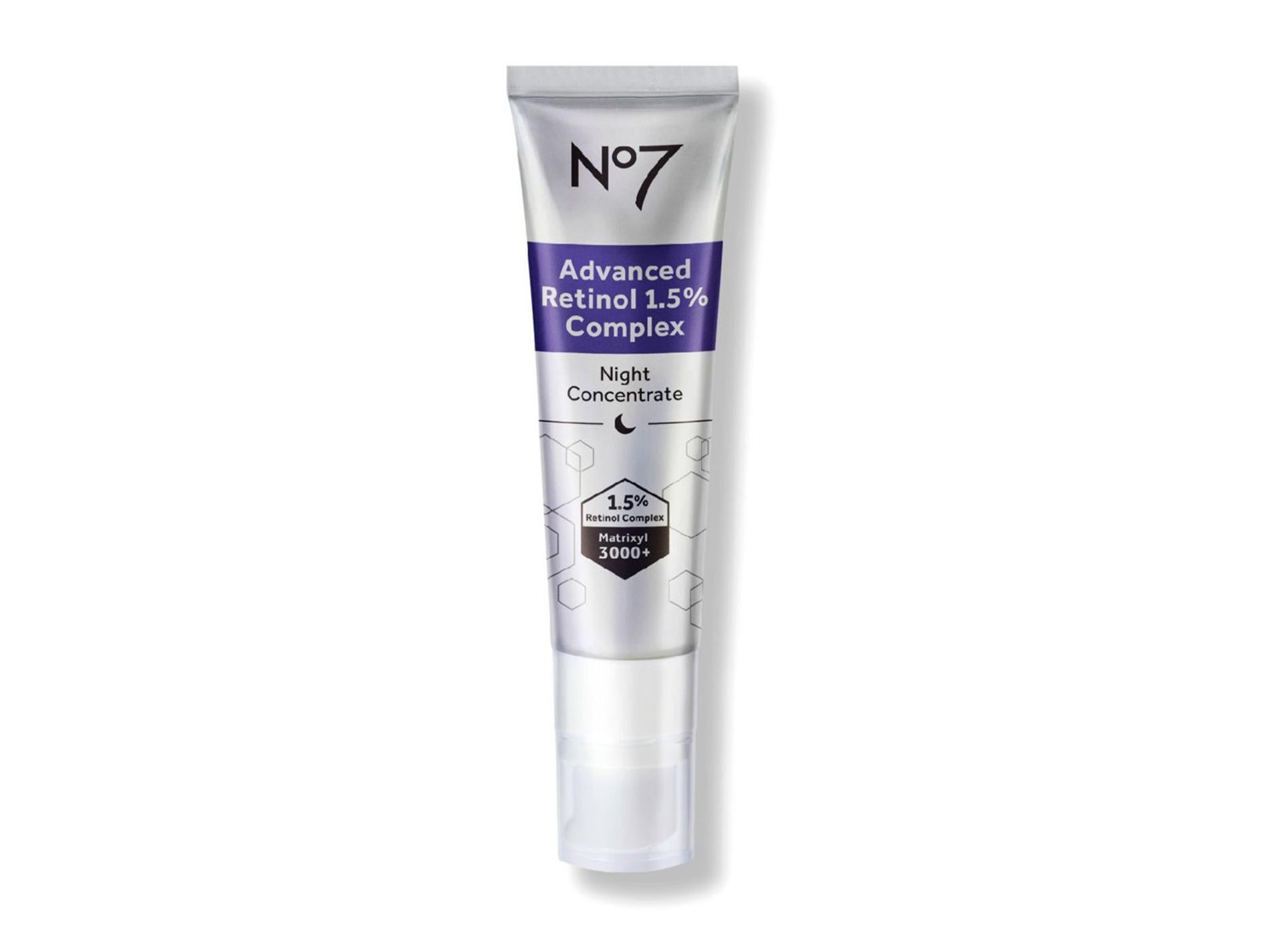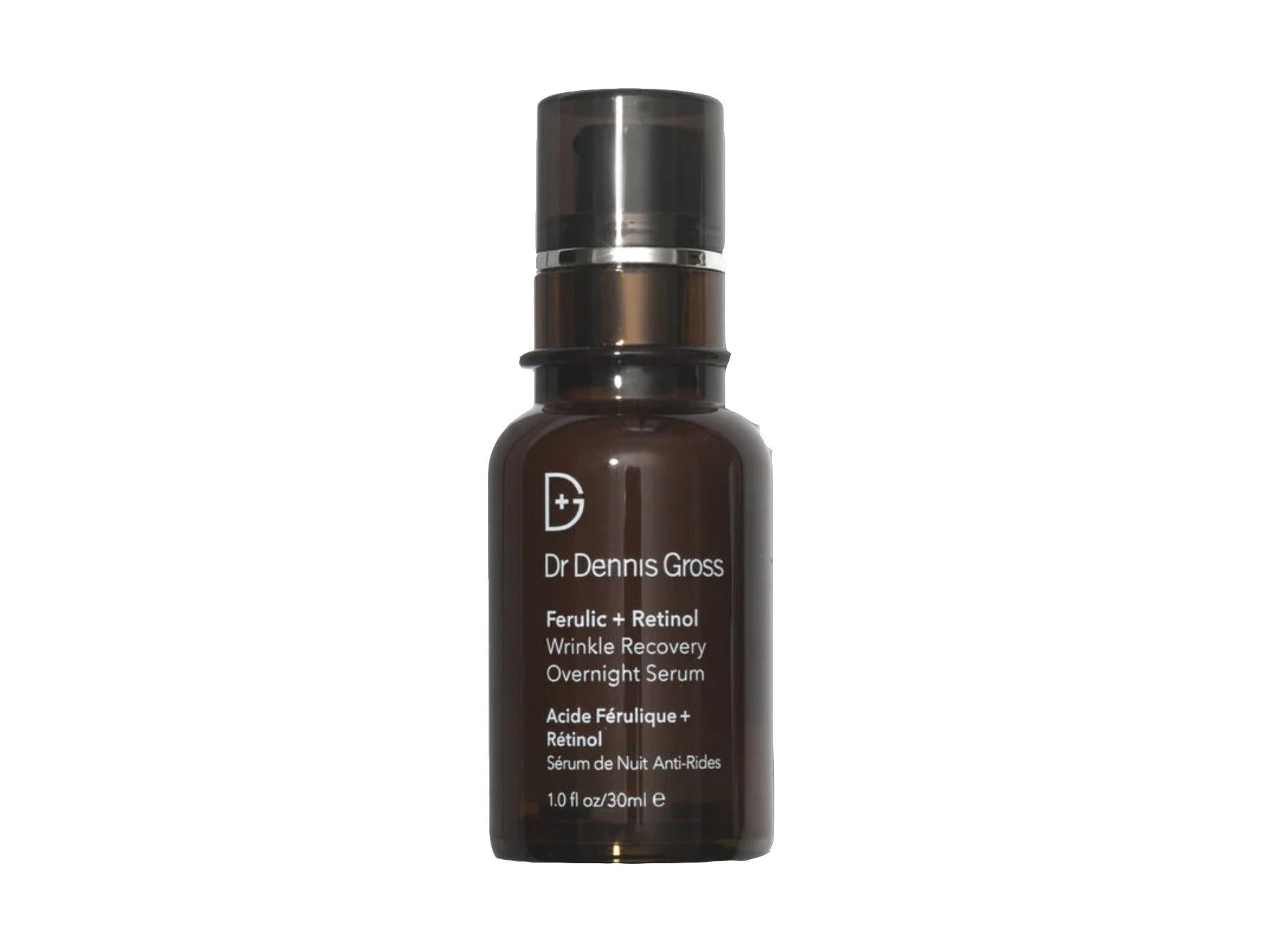The Independent's journalism is supported by our readers. When you purchase through links on our site, we may earn commission. Why trust us?
No7 v Dr Dennis Gross: Can a £25 retinol beat a product at triple the price?
The latest launch amassed a waiting list of 100,000 people – the largest ever sign-up for a product from Boots

Your support helps us to tell the story
From reproductive rights to climate change to Big Tech, The Independent is on the ground when the story is developing. Whether it's investigating the financials of Elon Musk's pro-Trump PAC or producing our latest documentary, 'The A Word', which shines a light on the American women fighting for reproductive rights, we know how important it is to parse out the facts from the messaging.
At such a critical moment in US history, we need reporters on the ground. Your donation allows us to keep sending journalists to speak to both sides of the story.
The Independent is trusted by Americans across the entire political spectrum. And unlike many other quality news outlets, we choose not to lock Americans out of our reporting and analysis with paywalls. We believe quality journalism should be available to everyone, paid for by those who can afford it.
Your support makes all the difference.Retinol is known among dermatologists and skincare lovers alike for being the gold standard ingredient in anti-ageing, being one of the few that actually has the science behind the claims made about it.
It works by increasing cell turnover and encouraging the production of collagen, tackling the appearance of fine lines, sun damage and scarring, while firming the skin and generally smoothing and brightening.
Shopping for a retinol can be overwhelming: for a start, you’ll often find the term “retinoid” used interchangeably with it. In fact, retinoid is the umbrella name for a group of ingredients that all derive from vitamin A, including retinol.
Many in this group are too strong for over-the-counter and so are prescription only. Retinol is the most commonly found vitamin A derivative available in stores.
It can also be pretty expensive (most serums are £50+), which is why when a budget version hits the shelves, it generates a lot of excitement among consumers.
When No7 announced its new “advanced retinol 1.5 per cent complex night concentrate” would cost just £25, 100,040 people joined the waiting list ahead of its launch last month – the largest ever sign-up for a single product from Boots.
We got our hands on a tube of the much-anticipated new product, and put it to a difficult test: a direct comparison with our long-time go-to in retinols, Dr Dennis Gross’s “ferulic + retinol wrinkle overnight serum,” which tops our round-up of best retinol products.
We considered the price point, packaging, texture, application and results, to find out which – the firm favourite or the hyped new launch – came out top.
You can trust our independent reviews. We may earn commission from some of the retailers, but we never allow this to influence selections, which are formed from real-world testing and expert advice. This revenue helps to fund journalism across The Independent.
No 7 advanced retinol 1.5 per cent complex night concentrate: £25, Boots

There’s no avoiding that the primary draw to this product is the price: £25 is a complete bargain compared to the majority of retinols on the market. It is worth noting that this is the special launch price; it will eventually retail at £34 – all the more reason to order now if you want to try it.
On first impression the packaging is good: it’s not a sleek glass bottle of the kind dressing table dreams are made of, but it’s simple and practical. A squeeze tube with a pump means you’ll get the maximum product possible out of it when it starts to run out, and it’s opaque, which is essential to stop the retinol degrading in sunlight.
The formula is a lightweight, thin, non-oily cream and it has a good slip across the skin, meaning a little goes a long way. It absorbs quickly, leaving no tackiness behind, and is fragrance free. In this category at least, it is nearly identical to Dr Dennis Gross’s formula: dispense a pump of each and we don’t think we could tell the difference between them.
No7 completed research with the University of Manchester into the highest concentration of retinol that can be tolerated without irritation, and found that 0.3 per cent was the most widely tolerated, without having majorly different effects to the one per cent. The
result is that this is a very gentle retinol; we experienced no irritation or dryness when used every evening (though our skin is already acclimatised to using retinol; we’d still suggest you ease yourself in if you’re a first-timer). After using this consistently for two weeks, our skin was soft, bright and we’d started to see some impact on the fine lines on the forehead.
Both these products pair retinol with another core ingredient, and in the case of No7 it is Matrixyl 3000+, which is a trademarked peptide blend that helps restore the plumpness and bounce to slack skin, and improve the look of wrinkles. It’s impossible to judge how effective this complex is in this product, as we can’t separate which are the results of the retinol and which of the Matrixyl, however we’ve seen promising results with other Matrixyl products, such as The Ordinary’s Matrixyl 10 per cent + HA, and Matrixyl 3000+ is used in many of No7’s most popular anti-ageing products.
Our main problem with this product is the marketing. You may have noticed that while No7 deduced that 0.3 per cent was the ideal retinol concentration, the product name contains the claim “1.5 per cent”. This percentage is actually made up of a combination of ingredients: retinol, Matrixyl 3000+ and bisabolol. A one per cent retinol is the maximum that can be sold over the counter in the UK, so this product couldn’t be 1.5 per cent concentration, but many consumers won’t be aware of that fact. The reality is that at 0.3 per cent, this is a gentle, entry-level retinol.
Dr Dennis Gross ferulic + retinol wrinkle recovery overnight serum: £89, Space NK

When it comes to cost, there’s an obvious winner between these two products: at £89, the Dr Dennis Gross formula is three times the price of No7’s.
The packaging is dark brown and has the slick look of glass, but it actually plastic, so it won’t smash if you drop it in the sink (we’re talking from experience here). It has a pump applicator and a clever internal base that pushes product to the top, meaning it empties from the bottom up rather than the top down, and you get more product out at the end of its life. The bottle is just translucent enough to see how much is left, but not so much as to risk the retinol degrading.
On application the formula is incredibly similar to No7’s: a lightweight, easily absorbed cream that easily spreads across the skin; you only need a pea-sized amount to cover the face and neck. It had a subtle, herbal fragrance and a very slight tightening sensation on the skin after application.
The formula is where these two products really part. Unlike No7, Dr Dennis Gross doesn’t list the percentage retinol of this serum. Many brands don’t, and it isn’t necessarily a bad thing. The percentage concentration isn’t always a straightforward measure of efficacy: the type of retinoid, its molecular weight and its formulation all impact how a product interacts with the skin. The maximum retinol percentage that can be sold over the counter is one per cent; so it likely falls somewhere in the 0.3 per cent to one per cent range.
The other star ingredient named alongside retinol in this product is ferulic acid, which is a perfect companion. Ferulic acid is an antioxidant, which helps to slow the skin’s ageing by protecting it from environmental damage, meaning this product offers prevention as well as “cure”. It also has a stabilising effect on ingredients such as vitamin C and vitamin A (eg retinol) meaning it helps the formula stay effective for longer inside the bottle.
But this formula houses another brilliant ingredient that isn’t given top-name billing: niacinamide, or vitamin B3. Niacinamide increases the skin’s elasticity, making skin look and feel plumper and more even, and is highly effective at reducing redness left by spots, making it a go-to for those who struggle with acne. It comes second in the listed ingredients, after water, meaning there’s a high concentration of it, too.
The results are the reason we come back to this serum again and again: it’s made serious headway with the fine lines on the forehead, around the mouth and on the crows’ feet that creep out towards the temple. Skin is noticeably rougher, less plump and more dull when we’re not using it.
The verdict: Which should you buy?
Each of these products has its benefits so we won’t dismiss either. Dubious marketing decisions aside, the No7 formula is really good at what it is: a fuss-free, entry-level, gentle retinol at a brilliant price point. We wouldn’t hesitate to recommend it to anyone with a history of reaction to stronger retinols, sensitive skin, or who wants to try out a retinol for the first time without spending a lot.
But ultimately, this is a case of you get what you pay for, and while we did see results with No7’s concentrate, with improvement in skin texture and some fine line reduction, the Dr Dennis Gross serum produced a far more noticeable change in both areas.
There’s no avoiding the fact that the cost will price many out, but if you can afford it, whether you’re a seasoned retinol user or a newbie looking for an upgrade, and whether you’re 30 or 70, we’d highly recommend Dr Dennis Gross' retinol for its powerful blend of ingredients and clearly marked results.